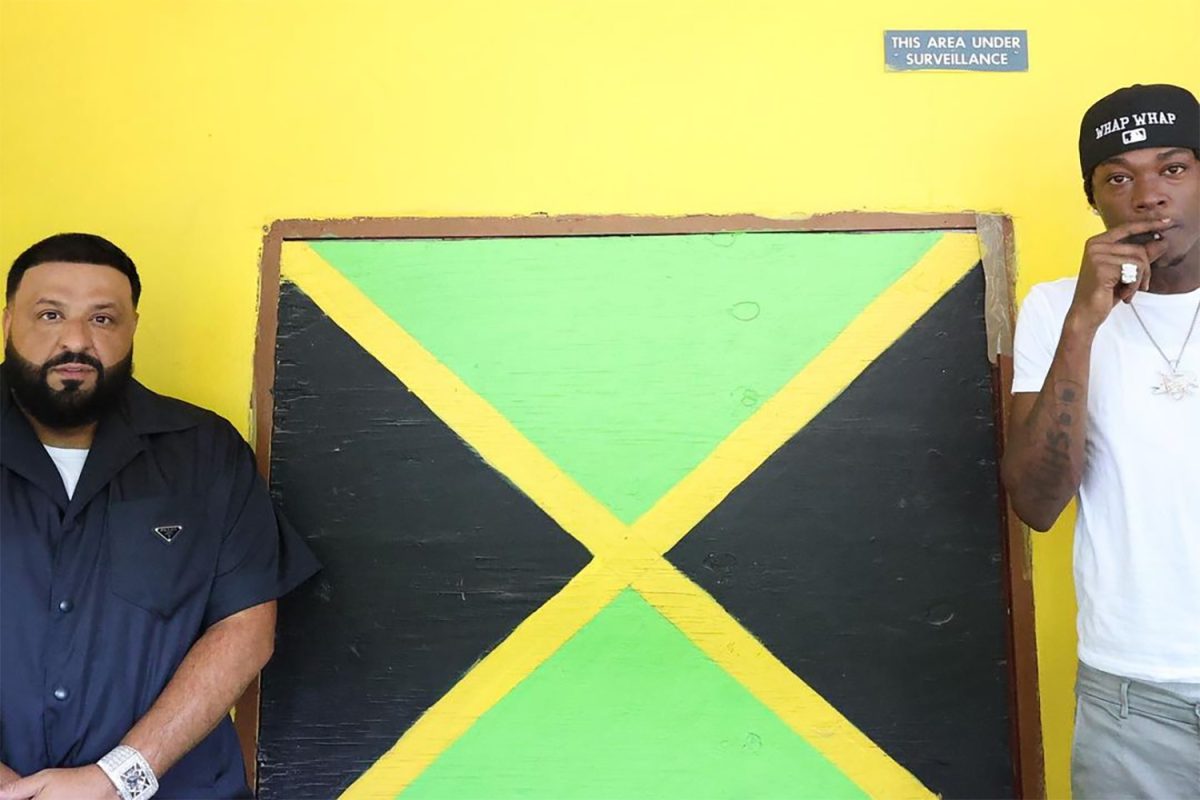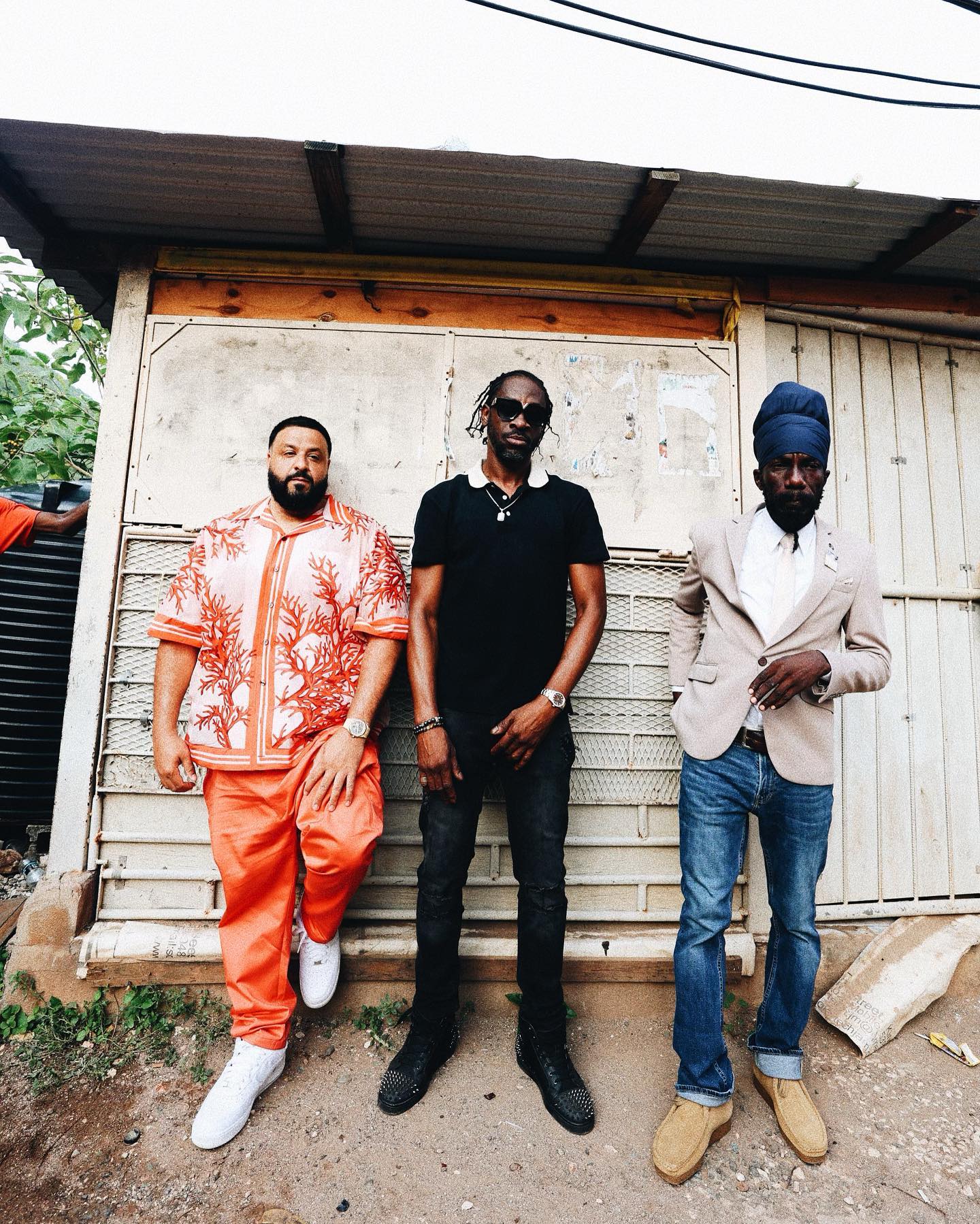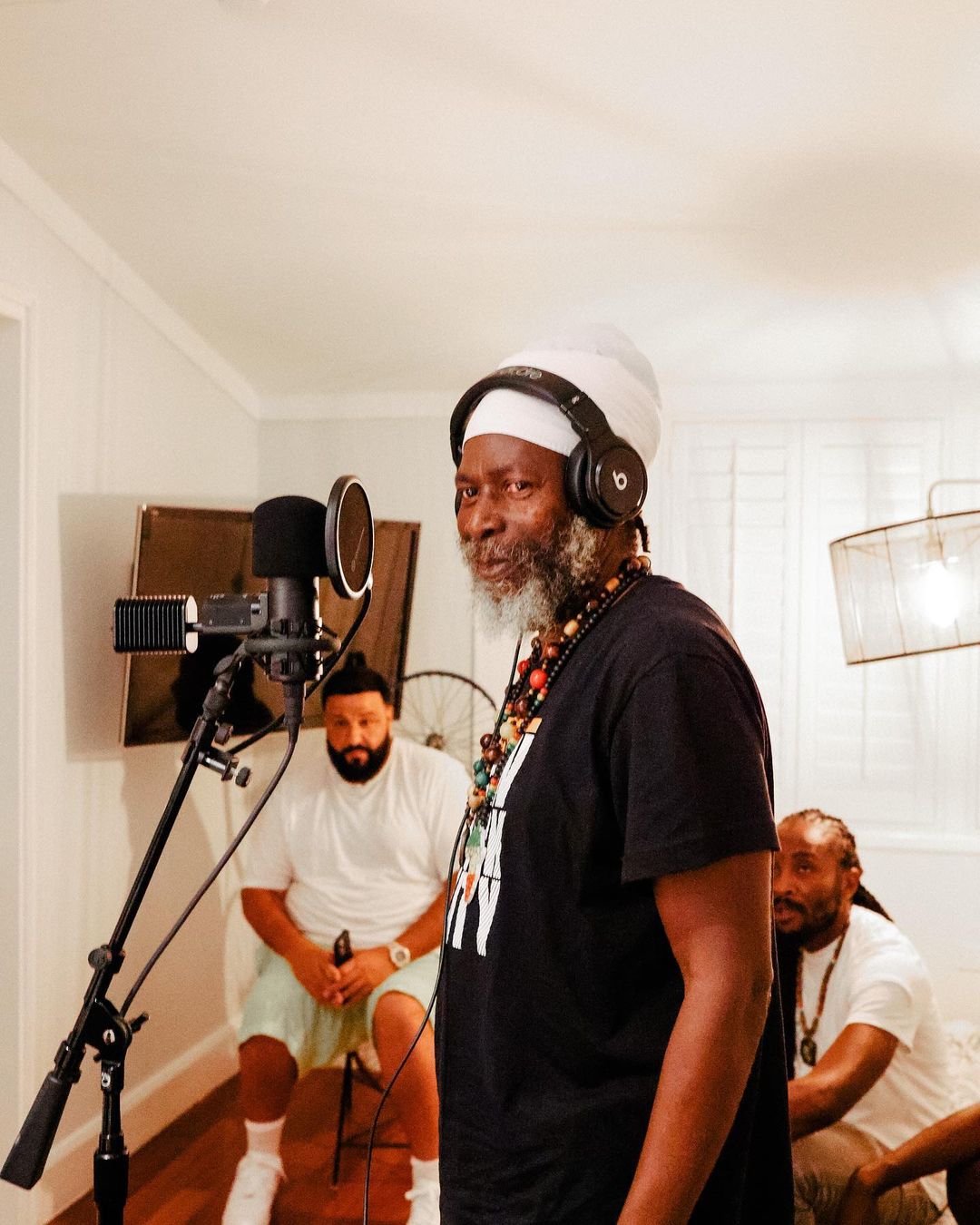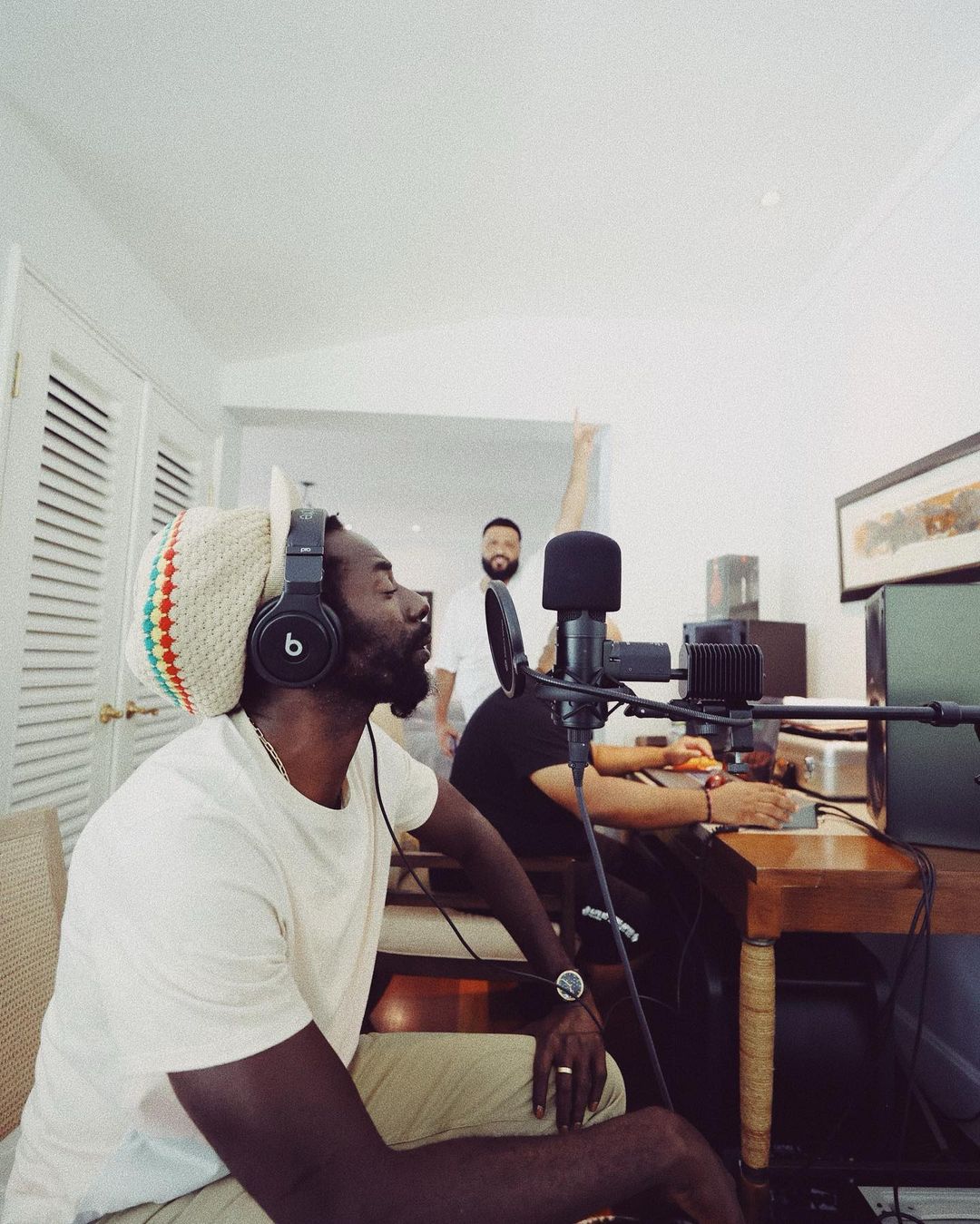DJ Khaled Promises “Monumental” Dancehall Record On His Upcoming Album ‘God Did’

Well-known for his affinity for Jamaican music, DJ Khaled says he has a “monumental” Dancehall record on his upcoming album, God Did, which is due out on August 26.
The American producer told the Drink Champs podcast, in the episode uploaded today (August 20) that it was imperative for him to revert to his roots to score major hits, and by all indications, his 13th studio album, as well as accompanying music videos are solid.
Speaking about the Dancehall record and its music video—which he recently visited Jamaica to complete—Khaled shared, “On GOD DID, I have something that is so monumental. The record is incredible, the video is done. Just who I got on it all together is kind of impossible. Like real talk, it’s really impossible. When you hear it and you come from that, they’ll be like, ‘I ain’t never seen that.’”
“The record’s crazy too and I’m very proud of it,” he added.

At least one track on Khaled’s upcoming album will feature several Jamaican stars.
When the producer touched down in Jamaica in late June, he headed straight to the studio with Buju Banton, Capleton, and then Sizzla. He was later seen on music video shoots with Skillibeng, and with Bounty Killer and Sizzla.
Alluding to his history with Jamaican soundclashes and sound systems, Khaled told Drink Champs hosts N.O.R.E. and DJ EFN that he has a tradition of honoring his Dancehall roots on his studio albums.
“I always go [to Jamaica] and I never forget about my roots and I always told you I’m a sound killer,” he said.

During an episode of The Grammy’s Up Close & Personal, in September last year, Khaled had explained that in the early days of his career as a DJ, he would travel between Miami and Kingston to observe Jamaica’s soundclash culture. This, he said, propelled him “to evolve from a teenage bedroom-turntablist to a popular Miami radio DJ”, who would play Rap and Dancehall mixes. Khaled said that his popularity had grown quickly courtesy of dubplates and specials from Jamaican Dancehall artists with whom he formed friendships.
He explained that the support he got from the Jamaicans was the fundamental reason he chose to close out his 12th studio album Khaled Khaled with the track Where You Come From , which featured Buju Banton, Bounty Killer, Capleton, and Barrington Levy.
“All those artists you saw on my album on that song, my friends that co-signed me in the beginning of my career. They used to give me dubplates and they put their hands around my shoulder saying we love this kid and I never forget where I come from,” he had said.
“Dancehall is a part of my story, you know what I’m saying, Jamaica is a part of Khaled’s story and it’s such a blessing… I love Reggae music and I love Dancehall.”

Buju and Khaled previously collaborated, along with Sizzla, Mavado and 070 Shake, on the Holy Mountain (2019) song and video. Holy Mountain was the first track on Khaled’s 11th album, Father Of Asahd. The project had also featured Buju on the final track, Holy Ground.
Grateful (2017), Khaled’s 10th album, had featured Sizzla on the opening track I’m So Grateful, and Mavado on the track Unchanging Love.
Mavado, who signed to Khaled’s We The Best Music Group in 2011, has appeared on several other albums by the producer, including Major Key (2016) on the final track Progress, I Changed A Lot (2015), on the track My League, Suffering from Success (2013) on the tracks Give It All Me with Nicki Minaj and on Weed & Hennessy, and Kiss The Ring (2012) on the Suicidal Thoughts.
With an extensive career and an estimated net worth of US$ 75 million , Khaled said his success is owed to self-confidence in each of his projects and he wouldn’t have it any other way.
“When I make records, I don’t ask nobody if you like it, or they don’t like it I don’t accept no opinions. I think that’s the key to my success that I never accepted nobody’s opinions. Even if it was good,” he said.
“I don’t let people hear my music till it come out and if you heard it, it’s because you was recording with me. I don’t ask for opinions…not just this project, but my whole process of making music. I love making music. I drink, sleep, breathe Hip Hop. It’s my life,” he continued. “I am the sauce. I am the wave. I am the anthem. I’m the one that you come to for hits. I’m the one that you wanna get a record on. I’m the one.”
When Where You Come From was released last year, Dancehall artist Mr. Lexx shared his opinion that DJ Khaled had been using the wrong methodology to incorporate Dancehall music in his productions, and called out the producer for working with only a select few Jamaican Reggae and Dancehall artists.
“Every time Kahlid (sic) come yah a di same artist dem him use and di song dem nah hit,” Lexx wrote. “Kmt yea I said it.”
Lexx later recommended that Khaled establish a Jamaican branch of We The Best operations, to show his appreciation for the culture’s impact on his rise to international stardom.
“Now, you have the capability and you have the capacity to ply a We Di Best Jamaica, inna Jamaica. [You] Seh yuh waan help di music, Usain Bolt have one building down a Half-Way-Tree Road, why yuh nuh just lease one floor and put We the Best Jamaica down deh suh,” he said. “Sign some producers, caw a Dancehall yuh waan produce enuh and all now yuh nuh hit inna Damcehall; outa di whole a di song dem weh yuh produce inna Dancehall, none a dem nuh hit.”
Mr. Lexx also added that if Khaled were to establish a We The Best label chapter in Jamaica, with a “man like Bounty Killer who is very good at spotting young talents at the forefront”, he would not be short of Jamaican music executives to run his operations either.
